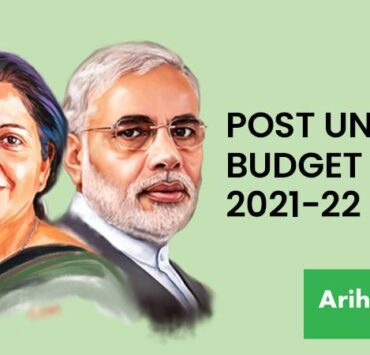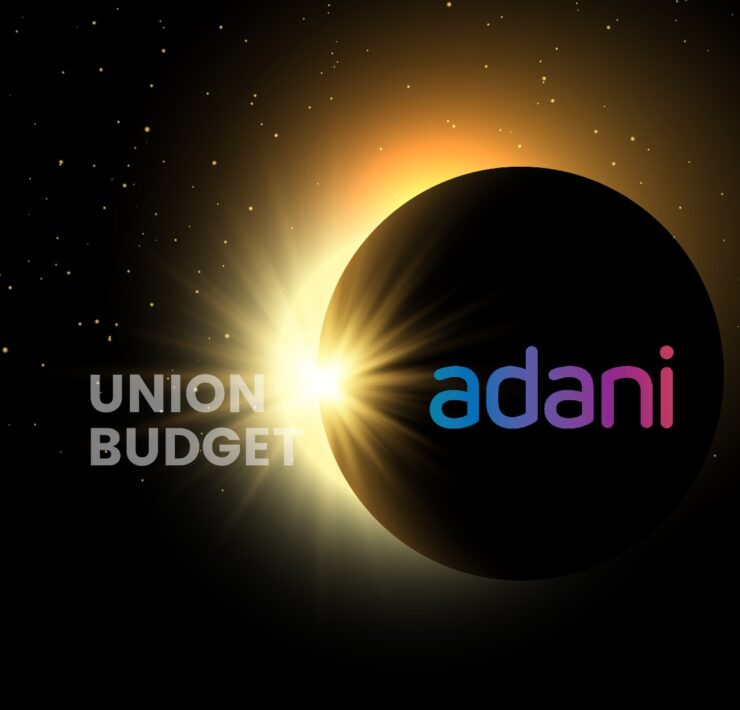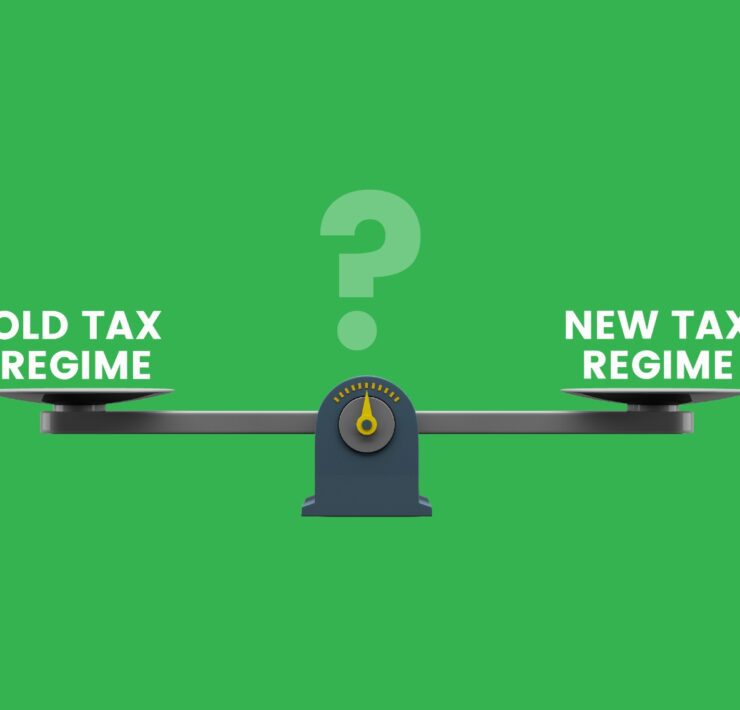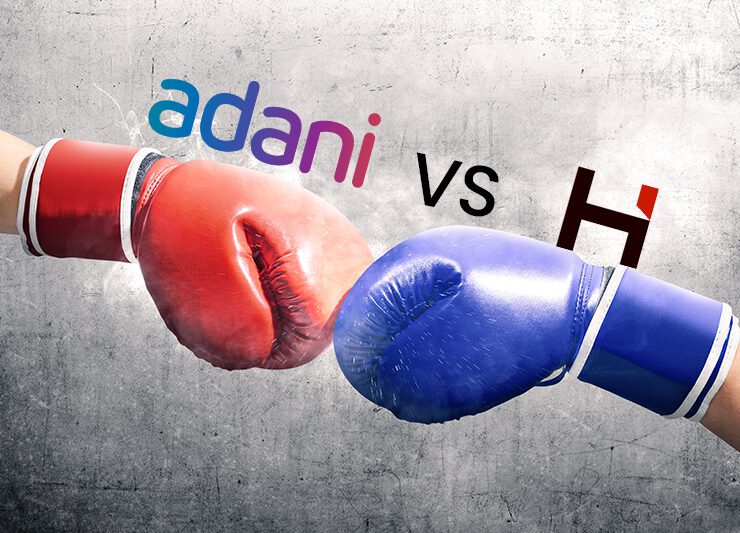Budget Expectations 2021?- Arihant Capital

In a year where the country hopes to recover from the corona virus pandemic, the responsibility will be on Finance Minister to bring much needed relief for sectors that got badly impacted , while also ensuring that the economy bounces back. From bringing back jobs in the market to tax deductions, there are a lot of expectations from Budget 2021.
Key Budget Expectations:
- Restructuring GST and GST rate cut specifically for manufacturing and retail
- Recapitalization of public sector banks
- Consequential amendment needed after abolition of Dividend Distribution Tax
- Introduction of National Retail policy for ease of doing business
- Expectation of increase in FDI for Insurance sector from 49% to 75%.
- Special focus on the Hospitality Sector
- SGB scheme: Amending Section-47 with reference to Sovereign Gold Bonds Scheme.
Expansionary budget; Infra spending expected to be higher while maintaining an eye on fiscal
India’s Honourable Finance Minister Nirmala Sitharaman is set to announce the annual Paperless budget on February 1, 2021 for the first time in the history of India. In FY21 we expect the Central Government’s fiscal deficit to widen to 6.8% of GDP inFY21, nearly double the original budget target of 3.5%, however better than previously feared (~8%), supported by a sequential improvement in revenues and a muted rise in spending. As expenditure is supported by strong nominal growth, optimism on tax collection and the government’s aggressive estimates for disinvestment and non-tax proceeds, we expect the fiscal deficit target to be set at 5.3% of GDP in FY22.
We expect the Government to fund around 70% of the fiscal deficit, through net market borrowing (Rs 8.3trn in FY22), which suggests gross market borrowing of ~Rs 11trn in FY22, down from Rs13.1trn in FY21.Unsurprisingly, many of the key themes in the Budget will revolve around COVID-19, either directly on health issues (vaccines), or regulatory support to sectors most affected (e.g., Hospitality, Retail, Aviation). In addition, Infrastructure, Agriculture, the social sector, promotion of domestic manufacturing, alongside incentives to boost construction and housing are likely to be in focus
India: Budget (FY21BE) at a glance
| Amount in INR cr | FY19 | FY20 | FY20 | FY21 |
| BE | Revised | BE | ||
| Revenue Receipts | 15,52,916 | 19,62,761 | 18,50,101 | 20,20,926 |
| Tax Revenue (Net to Centre) | 13,17,211 | 16,49,582 | 15,04,587 | 16,35,909 |
| Non Tax Revenue | 2,35,705 | 3,13,179 | 3,45,514 | 3,85,017 |
| Capital Receipts | 7,62,197 | 8,23,588 | 8,48,451 | 10,21,304 |
| Recovery of Loans | 18,052 | 14,828 | 16,605 | 14,967 |
| Other Receipts | 94,727 | 1,05,000 | 65,000 | 2,10,000 |
| Borrowings and Other Liabilities | 6,49,418 | 7,03,760 | 7,66,846 | 7,96,337 |
| Total Receipts | 23,15,113 | 27,86,349 | 26,98,552 | 30,42,230 |
| Total Expenditure | 23,15,113 | 27,86,349 | 26,98,552 | 30,42,230 |
| On Revenue Account of which: | 20,07,399 | 24,47,780 | 23,49,645 | 26,30,145 |
| Interest Payments | 5,82,648 | 6,60,471 | 6,25,105 | 7,08,203 |
| Grants in Aid for creation of capital assests | 1,91,781 | 2,07,333 | 1,91,737 | 2,06,500 |
| On Capital Account | 3,07,714 | 3,38,569 | 3,48,907 | 4,12,085 |
| Revenue Deficit | 4,54,483 | 4,85,019 | 4,99,544 | 6,09,219 |
| Effective Revenue Deficit | 2,62,702 | 2,77,686 | 3,07,807 | 4,02,719 |
| Fiscal Deficit | 6,49,418 | 7,03,760 | 7,66,846 | 7,96,337 |
| Primary Deficit | 66,770 | 43,289 | 1,41,741 | 88,134 |
Source: Finance Ministry; BE = Budget estimate. FY ends Mar
|
Sector |
Expected Budget Announcement |
Key Beneficiaries |
|
Taxation |
With thousands having lost their jobs, and many more having had to undergo a salary cut across the country due to the COVID-19 pandemic, Sitharaman might be looking at possible ways to put more disposable income in the hands of the people.
Budget 2021 might take forward the relief announced with the Atma Nirbhar package with the basic tax exemption limit for an individual being raised to Rs 5 lakh from the current Rs 2.5 lakh.
Until now, while the Modi government has pushed for a rebate on all payable taxes, the basic tax exemption limit has remained the same.
Higher standard deduction (salary that is not subject to income tax) could also be on the way – from the current Rs 50,000 to Rs 75,000-Rs 1,00,000.
The government could also be planning a COVID cess on high income earners. |
Rise in disposable income will lead to more consumption leading to rise in demand |
|
Disinvestment |
As the Modi government looks to recover the economy, it may also increase divestment targets for the year. The government is likely to raise its divestment target to Rs 2.5-3 lakh crore. In Budget 2020, the Government had set a target of Rs2.1 lakh crore, however it has managed a meagre amount of it – Rs 13,844.49 crore. |
The government plans to achieve disinvestment target with the long- pending privatization of government-owned entities like Air India, BPCL, Concor, ShippingCorp. & LIC |
|
(AtmaNirbhar Bharat) |
Manufacturing industry is expected to get a big push in the Union Budget 2021-22 as the country focuses on ways to reverse the Covid-19 induced economic slowdown. The mantra of the Budget could be drawn up around the Atmanirbhar Bharat scheme, with specific push for migrant labourers- importance of this segment which has been highlighted only with the onset of the pandemic, besides, manufacturing, other sectors including healthcare, agriculture, infrastructure and housing would also be the focus in the coming Budget. The Production-Linked Incentive (PLI) scheme to boost manufacturing will get a further push to attract investments, both foreign and domestic. |
2 wheelers, car Companies, Tractor makers |
|
Construction/ Affordable Housing & Infrastructure |
In Budget 2020, Finance Minister had proposed to extend the benefit of additional deduction of Rs 1.5 lakh on interest paid on affordable housing loans by a year to March 2021.
The government may make way for a massive boost for the construction and affordable housing sector. |
Positive for Stocks like L&T, KNR Construction, ACC, Ambuja Cement & Ultratech Cement |
|
Healthcare |
With the COVID-19 pandemic having shown the need for better healthcare infrastructure and facilities in the country, it is likely that the sector will see renewed focus “Combined with the start of the 15th Finance Commission period, we may see a jump in healthcare spending,”., within the healthcare stimulus we could also see the extension of tax benefits under Section 35AD. There could be an increase in deduction under section 80D of mediclaim premium to be increased to Rs 50,000 (for self and spouse) and will remain at Rs 50,000 (for dependant parents). |
Positive for stocks like Apollo Hospital, Fortis Healthcare, Shalby Limited |
|
Pharma |
Expectation of revision in existing production-linked incentives (PLI) scheme to reduce API import dependency which will further boost local manufacturing and employment generation.
Incremental R&D incentives will support for higher investments in developing new and quality drugs (complex, novel and specialty). GOI may also introduce policies for high risk involving research and new innovations.
Regulatory and export incentives: Government has already approved tax reimbursement scheme for exporters and rates are yet to be finalised for Remission of Duties and Taxes on Exported Products (RoDTEP) scheme. Structural cut in GST rate is expected for all life-saving and critical therapy drugs which will lead to increase in overall market demand and consumption. |
Positive for Divis Laboratory, Lupin, Alembic Pharma, (API manufacturers, Export units) |
|
Insurance |
Expectation of increase in FDI from 49% to 75%.
Though the Covid pandemic has improved insurance awareness amongst the people, there is lot more to be done to increase insurance protection in the country. There is an expectation of tax saving benefits towards insurance sector under section 80C and 80D which will help in increasing the insurance penetration, especially in the wake of Covid-19. |
Positive for HDFC Life, ICICI Lombard |
|
Banking and NBFCs |
Recapitalisation of PSU Banks – Over the period of FY16-20, Government has infused total capital of Rs 3.16 lakh cr. Since the asset quality of banks is likely to come under stress because of the pandemic, there is possibility to provide fresh round of capital for PSU banks.
Creation of Bad bank – As per RBI FSR, GNPA for PSU banks are expected to rise from 9.7% in Sep’20 to 16.2% by Sep’21. There is a talk that government is setting up a bad bank to takeover the NPAs from PSU Banks. However, it needs to be seen from Capitalisation point. A bad bank can act as an aggregator of all stressed assets in the system and work towards the resolution of these assets whereas banks can focus on business. The Reserve Bank of India (RBI) is open to the idea of a bad bank if there were to be a proposal, central bank governor Shaktikanta Das said.
Establishing of Bank Investment Company (BIC): The government may establish a bank investment company to consolidate its holdings in PSU bank. BIC was mooted in 2014 by the Reserve Bank of India’s (RBI) PJ Nayak Committee Report to review governance of boards of banks.
Setting up of DFI: The government plans to set up a Development Finance Institution (DFI), to meet the need of infra financing projects which banks are not suited to lend for those long-term projects. |
Positive for across public sector banks mainly, SBI, Bank of Baroda, Canara Bank |
|
Retail Sector |
With the upcoming Budget, there is an opportunity for the government to acknowledge the challenges in the retail sector and take measures to steer the economy towards higher growth track. Government is likely to push for discretionary spending for creation of demand and jobs. Which will benefit the retail sector, various factors like revival of manufacturing sector, incentives in the Union Budget for small traders and availability of money with consumers to drive spending, would be pivotal for the sector.
Some of the key expectations that the retail industry has from the budget are – Restructuring GST norms – There is a need to ease GST norms and reduce GST rate to encourage people to spend more. With introduction of incentives and measures, the government needs to drive more money in the hands of the consumer to accelerate the demand and consumption.
Infrastructure boost in the Tier II and III markets – With growing awareness in Tier II and III markets, owing to urbanisation and digital awareness, they hold great potential for expansion and growth. However, dearth of infrastructure is a constraint for retailers and global brands. Relaxation in FDI policy for the segment or solid policy/incentive will help the segment greatly.
Introduction of national retail policy for ease of doing business |
Positive for companies like Avenue Supermart, Indiamart, Trent Limited & Raymond. |
|
Travel Tourism & Hospitability |
The travel and tourism industry that has been reeling under the cascading impact of corona virus is now eyeing on the upcoming Union Budget 2021 and is hoping that the budget will provide them some relief for post-Covid recovery. The Federation of Associations of Indian Tourism and Hospitality (FAITH) has urged the government to provide some incentives in the Union Budget .
FAITH has raised a demand to exempt the tourism sector from the integrated goods and services tax (IGST) and income tax exemption on travel to India.
Meanwhile, the hospitality sector, which is one of worst-hit sector due to the coronavirus pandemic, is also expecting some relief in the Union Budget. |
Positive for companies like Mahindra Holidays & Resorts, Indian Hotel &TaJ GVK |
|
FMCG |
Agriculture stood strong during the pandemic environment. To provide continuous support for improvement of agrarian and rural economy, the government may increase allocation under the MNREGA scheme as compared to Union Budget 2020-21. The government could also spend more on improving warehousing and cold storage facilities for farmers. Greater incentives and higher investment for improving rural economy.
The government might increase cess rate on cigarettes in double digits in the upcoming Budget to improve its revenue. If the cess on cigarettes is increased by 10-15%, it would affect sales volumes of ITC’s cigarette business in subsequent quarters, as the company will pass on any increase in tax rate to consumers through price hikes. However, increase in tax rate in the range 0-10% would have marginal impact. However, it will be positive surprise if there is no increase in the tax rate on cigarettes. |
Positive for rural- centric companies such as Hindustan Unilever, Dabur India.
If a special tax is imposed it will be positive for companies such as Avenue Supermarts.
No hike will be positive, but anything more than 6‐7% will be a big negative for cigarette stocks like ITC, VST, Godfrey |
|
Auto-Ancillaries |
– Expectation to get clarity on incentives to be provided to automobile OEMs and auto-ancillary companies for exports.
– Enhance agri-credit and launch schemes to raise farmer productivity as stronger farm incomes would benefit tractor OEMs, select two-wheeler and four-wheeler OEMs and auto ancillary. Companies supplying to such OEMs. |
positive for export- reliant companies. |
|
Auto |
-If income tax rate is reduced, it will enhance disposable income in the hands of customers and boost demand. – Reduction GST on smaller cars and two wheelers from 28% to 18%. It will be positive for increase demand due to lower prices. There have been significant price hikes in last 1-2 years, driven by BS-VI transition and rise in prices of key raw materials. – Electric mobility is another major theme and a key priority area for the government. Ongoing focus on electric mobility is bearing fruits and many Indian promoters and international groups are willing to invest in the electric vehicle (EV) segment. Infrastructure for ease of use of EV like charging kiosks is another important requirement to boost demand. -Reduction of excise duties on automotive fuels. It Would reduce the running costs of vehicles and boost demand |
Positive for 2 wheelers and passenger vehicles.
Tata Motors, Ashok Leyland, Escorts, Eicher, M&M.
PV manufacturers and Auto Ancilliary players
All OEMs |
|
IT/ITES |
– Greater allocation towards the transition from traditional learning to digital methods has helped the growth of edtech start-ups and existing companies, and it will most likely continue. level in crucial areas such as education and healthcare leading to increased efficiency and greater accessibility.
– The government must facilitate technological solutions at a considerably lower total cost of MSMEs’ operations and include the same in the budget. This has paved the way for IT solution providers to create products and services that are relevant, affordable, and address the real-life challenges of the MSMEs.
– Stronger data protection laws to protect valuable data from being misused by entities. A concessional corporate tax rate of 15% for all new units incorporated in SEZs that commenced operation within a prescribed period.
– If tax incentives are provided, it will be positive for R&D companies in the IT space.
– The expectation is to allow claiming of unutilised credit of MAT to entities, which opt for a lower tax regime. IT-BPM companies have huge un utilised MAT credit owing to tax holidays. – Clarify that work-from-home by SEZ employees would not affect eligibility of tax holiday. If WFH does not cause unwarranted tax litigation. |
Positive for TCS, Infosys, LTI, Mphasis
A competitive tax regime would attract investment in the IT- BPM sector.
HCL Tech, Wipro, Tech Mahindra, Mindtree etc
Positive for the ITBPM sector |
Conclusion
We believe this budget has increased its expectations with FM comment as “best budget in 100 years” which looks challenging in current scenario. In our opinion government has limited opportunity to fix things right in current scenario given current social, economic and political environment.
Efforts are to be made to pull demand and boost manufacturing in a way that it would boost business in long term and wont impact business in long term. We believe announcements are likely to be made for boosting urban consumption. All announcements are likely to be made with a target for revival of urban consumption with support to sectors, which are connected with discretionary spending.
Another important measure market is looking would be fiscal prudence. The Indian government fiscal discipline has gone haywire post COVID, however we believe due to much stronger recovery than what was earlier feared, fiscal deficit number to be at 5 pc in FY22. We need to see some fiscal prudence would be maintained in current scenario by the government. On the taxation side, We don’t see any major increase is possible in tax rates except a 50 bps cess is possible as Covid tax.
Due to its budgetary constraints, India has been on the bottom of the health-spending pecking order and hardly any focus has given to the sector since so many years due to limited funds availability. The pandemic has definitely changed the outlook for the sector. We may see some schemes that would insure higher number of people during any pandemics and emergencies.
Our top picks for Budget are ICICI Lombard, Fortis Hospitals, Thomas Cook, Raymond, SBI, IRCTC, Axis Bank, Lupin, TCS , PVR, Mahindra Holidays Limited. We believe valuations have run up significantly recently and market is discounting most optimistic scenario at current levels. We also like few divestment theme plays that can be played via CPSE or PSE stocks where valuations offer good opportunity. On the over-all basis, do not expect much from this budget.










